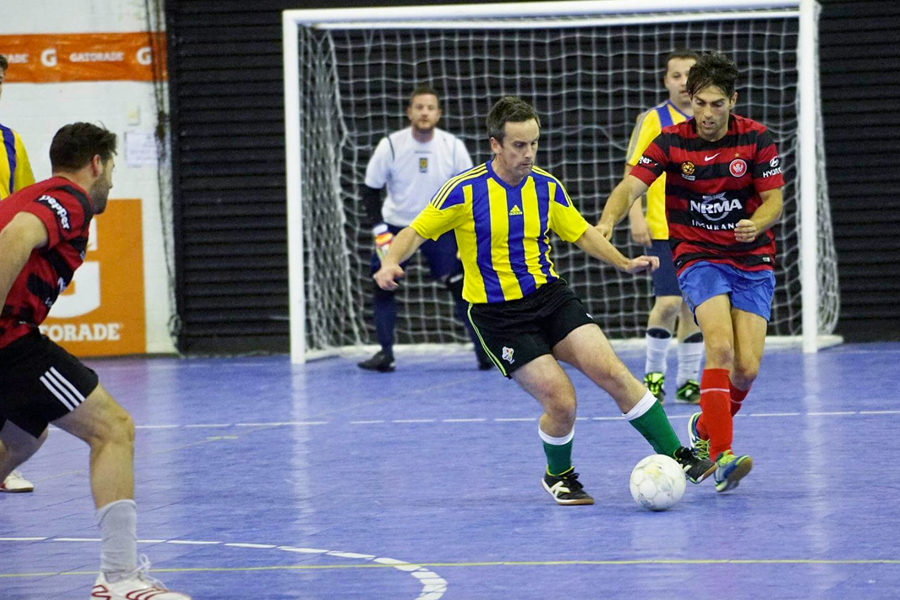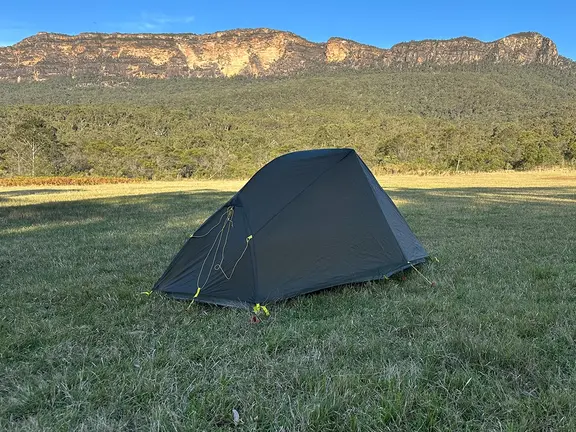
Published:
Readtime: 10 min
Every product is carefully selected by our editors and experts. If you buy from a link, we may earn a commission. Learn more. For more information on how we test products, click here.
One would think that in today’s age of social media, most adults would know how to make friends with ease. Yet the exact opposite is true, and some might even say social media plays a role. The truth is, however, that figuring out how to make new friends has pretty much always been a struggle for an overwhelming majority of adults.
So how does one make new friends in this day and age? Furthermore, why is it so much harder to forge meaningful connections with strangers when you’re older vs when you’re younger? Today, we find out.
11 Ways to Make New Friends as an Adult
Will you be my friend? Okay, so it’s usually not that easy. Let’s try these 11 ways instead.

1. Put Yourself Out There!
Here’s the one true thing you need to remember: there are literally millions (and millions) of other people currently searching for some sort of connection. But you’ll never cross paths with those people if you don’t put yourself out there.
Thankfully, it’s never been easier to meet with like-minded individuals than it is at this very moment. We guess social media serves a beneficial purpose after all! Here are some ways you can put yourself out there:
- Join a group – Do you like whisky? Or maybe you carve small animals out of wood? Whatever your passion, there are many people who share it. Join Facebook groups or use other meet-up sites to connect with those people. This is how to make friends using the wonders of technology.
- Volunteer – Odds are you support a cause or various causes. That means you have another avenue toward meeting like-minded individuals. Plus, you’re doing some good in this world.
- Put yourself in social situations – Even if your last experience at a bar, club, or party was negative, you get right up on that saddle and try again. You just never know who you might bump into. And we’re not talking about getting lucky—that’s what Tinder is for.
- Play a sport – Bocce leagues. Bowling leagues. Indoor football. Softball. Dodgeball. It’s out there, it’s fun, and it will connect you with others.
- Join a fitness program – With fitness comes friendship, as you might soon discover. Don’t believe us? Then sign up for yoga and see what happens.
- Attend networking events – Land a sweet gig and make a new friend in one fell swoop? Sounds good to us!

2. Get a Dog
When you have a dog, you go on walks and visit the dog park. This puts you in touch with other dog people. Trust us when we say that friendship often follows. It’s actually kind of crazy how many friendships can result from dog ownership. And let’s not forget about the dog itself—they don’t call them man’s best friend for nothing!

3. Take it Slow
Treat your potential bromance the way you would a potential romance by taking things one step at a time. Don’t call or text the very next day. Instead, wait a week or so and then casually suggest a meet-up. Let the friendship evolve at its own pace and don’t feel hurt if it doesn’t prove to be a good match. The last thing you want to do is look too needy.

4. Use Pre-Existing Friends to Your Advantage
The easiest way to make new friends is to utilise the ones you already have. For example, maybe there’s a group at work who keep inviting you to happy hour. Even if the people in this group are more casual acquaintances or regular friends than they are good friends, they can provide the social springboard you might need.
Perhaps they’ll invite some other friends to the same happy hour or wrangle in some strangers while you’re at the bar. The net of possibility has just widened in your favour. This is how to make new friends, folks!

5. Don’t Hesitate, Initiate
We have some great news: it’s a lot easier starting a random conversation than it is initiating the first move on a date. Why is this good news? Because it gives you the perfect chance to open your mouth and start talking in a social environment. Almost any question or topic (within reason) will suffice.
6. Keep an Open Mind and Heart
As an adult, you’re not in Kansas anymore and most of your potential peers were never in Kansas, to begin with. That means you’ll have to open your mind and heart a little if you’re going to make new friends. If you meet someone who doesn’t live the way you live or think the way you think, don’t write them off just yet. You might even learn something about yourself in the process.

7. Be a Good Listener
We know it sounds like we’re giving relationship advice, but that’s because friendships are relationships. In the same manner that you’d impress a date by asking thoughtful questions and being a good listener, you should do the same with a good friend. Get to know their background, their interests, and their passions.

8. Don’t Wear a Mask
No, this isn’t a reference to your latest cosplay get up. Rather, we’re suggesting that you don’t present yourself as something you’re not. Again, the point here is to make a meaningful connection that can only start from an honest place. Don’t worry about what someone wants to hear if it’s not something you actually feel. Show them who you are and let the chips fall where they may.

9. Practice Restraint
With the last tip in mind, this one might sound like a contradiction: show a little restraint if you have an aggressive or peculiar personality. For instance, if you happen to be a sarcastic type, don’t go all out during the first few exchanges. Let your new friend get used to your behaviour patterns so that they won’t be offended once the wisecracks start to fly. We’re not saying you can’t be yourself, just that you should unravel in layers like a fine whisky.

10. Be Supportive
In many ways, ongoing support is the foundation of a strong friendship. If your friend is going through a hard time, it’s important to let them know that you’ll always have a free shoulder to lean on. Then when your own struggles come around, you know exactly who you can turn to. Awwww…

11. Keep in Touch
A waning friendship is one where each party doesn’t reach out to the other on a fairly consistent basis. Even if you’re busy with other duties, you can still throw your friend a funny text or simply check-in. It might sound a little corny, but this is how to make friends and keep them.

Why Don’t You have Good Friends When You’re Older?
At a young age, forging new friendships is crucial to both your social and emotional development (which is why your parents will encourage it) and even your survival skills. By forming these early social bonds, you’re also building upon your ability to communicate with others somewhere down the road. That’s not to mention the fact that good friends will prop you up in all sorts of ways and often when you need it the most.
Because these early bonds are so tightly tethered to your livelihood and development, they tend to be stronger. Hence, you’re more likely to make good friends before the age of 25. How to find friends becomes a little trickier after that and so too does life itself.
Being that good friendship delivers so many benefits, one might wonder why it doesn’t continue into adulthood. First and foremost, it does to an extent, in that you’re likely to retain at least a few of the friendships you developed as a youth or adolescent. Also, in today’s age, more adults are adopting adolescent-like behaviour patterns and therefore cultivating friendships the way they did when they were younger.
Nevertheless, it’s a general rule that making good friends when you’re an adult is harder than it was when you were a youth. That’s in part because both your sociological and biological needs have changed. It’s also because your environment has typically changed. We explore below.

Why is it so Hard to Make New Friends as an Adult?
If childhood is all about building a set of sociological and survival skills, then adulthood is about putting those skills to use and even passing them onto younger generations. For most adults, this means getting a job, finding a mate, reproducing, and raising a family.
Since friendship is less fundamental to your overall routine as an adult, forging a new and genuine friendship becomes that much harder. Even work-based relationships are most likely to fall under the category of “casual acquaintance” or “regular friend” than “good friend.”
Here’s something else to consider: small towns and even college campuses represent bubbles and you’re more likely to make new friendships inside a bubble. In the cosmopolitan world, finding true common ground is more difficult because general personalities and outlooks are different from one person to the next.
However, don’t take all this to mean that forming a new friendship isn’t necessary or achievable when you’re an adult. After all, it can still serve many of the same purposes it used to, providing emotional support, back-up when you need it, general companionship, and just an overall good time. This is truer now than ever before, as the norms of adulthood continue to change drastically.
It’s therefore highly important that one learns how to make new friends (and good ones at that). Here are some ways to do it.
General FAQ
There’s truly no shortage of places where you can meet others and make friends. You can volunteer, join an online group that has occasional meet-ups, play a sport, sign up for yoga, attend networking events, and so much more.
First and foremost, you should overcome any anxieties you might have. Next, put yourself out there. Prepare to be surprised at what you discover.
Mental apprehension and general shyness are the two most common things getting in your way. In other words: your personality isn’t the problem. Remember that we’re all in this together and put yourself out there.
You’ll also like:
How to Fall Asleep Quickly
13 Secrets to a Better Night’s Sleep
How to Improve Your Memory






























Comments
We love hearing from you. or to leave a comment.